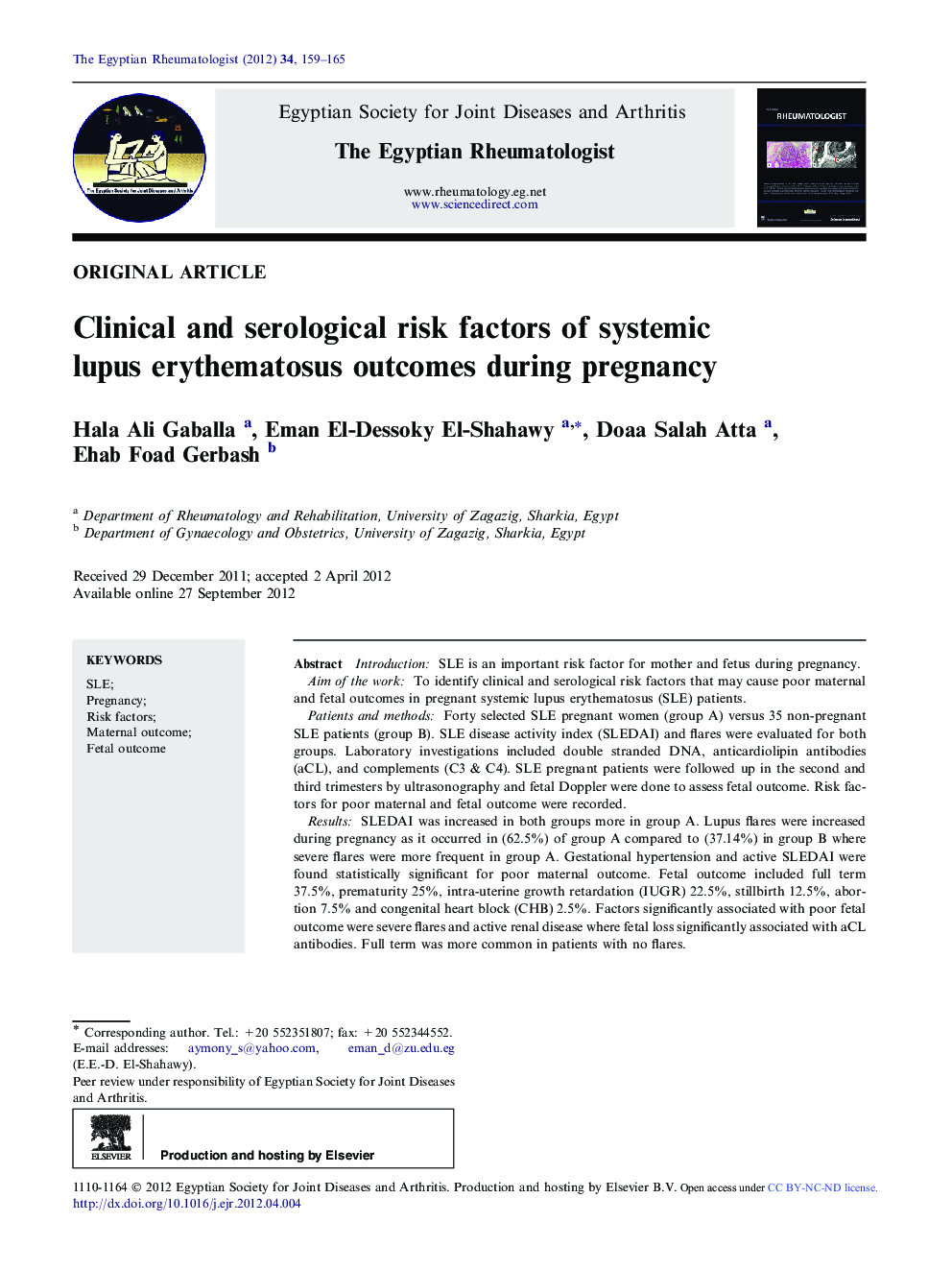| Article ID | Journal | Published Year | Pages | File Type |
|---|---|---|---|---|
| 3349085 | The Egyptian Rheumatologist | 2012 | 7 Pages |
IntroductionSLE is an important risk factor for mother and fetus during pregnancy.Aim of the workTo identify clinical and serological risk factors that may cause poor maternal and fetal outcomes in pregnant systemic lupus erythematosus (SLE) patients.Patients and methodsForty selected SLE pregnant women (group A) versus 35 non-pregnant SLE patients (group B). SLE disease activity index (SLEDAI) and flares were evaluated for both groups. Laboratory investigations included double stranded DNA, anticardiolipin antibodies (aCL), and complements (C3 & C4). SLE pregnant patients were followed up in the second and third trimesters by ultrasonography and fetal Doppler were done to assess fetal outcome. Risk factors for poor maternal and fetal outcome were recorded.ResultsSLEDAI was increased in both groups more in group A. Lupus flares were increased during pregnancy as it occurred in (62.5%) of group A compared to (37.14%) in group B where severe flares were more frequent in group A. Gestational hypertension and active SLEDAI were found statistically significant for poor maternal outcome. Fetal outcome included full term 37.5%, prematurity 25%, intra-uterine growth retardation (IUGR) 22.5%, stillbirth 12.5%, abortion 7.5% and congenital heart block (CHB) 2.5%. Factors significantly associated with poor fetal outcome were severe flares and active renal disease where fetal loss significantly associated with aCL antibodies. Full term was more common in patients with no flares.ConclusionThese data demonstrate that pregnancy in SLE patients should be considered as a high-risk pregnancy and conception should be planned during a quiescent period. Close monitoring for optimal disease control of flares, lupus nephritis, gestational hypertension and aCL antibodies is recommended.
